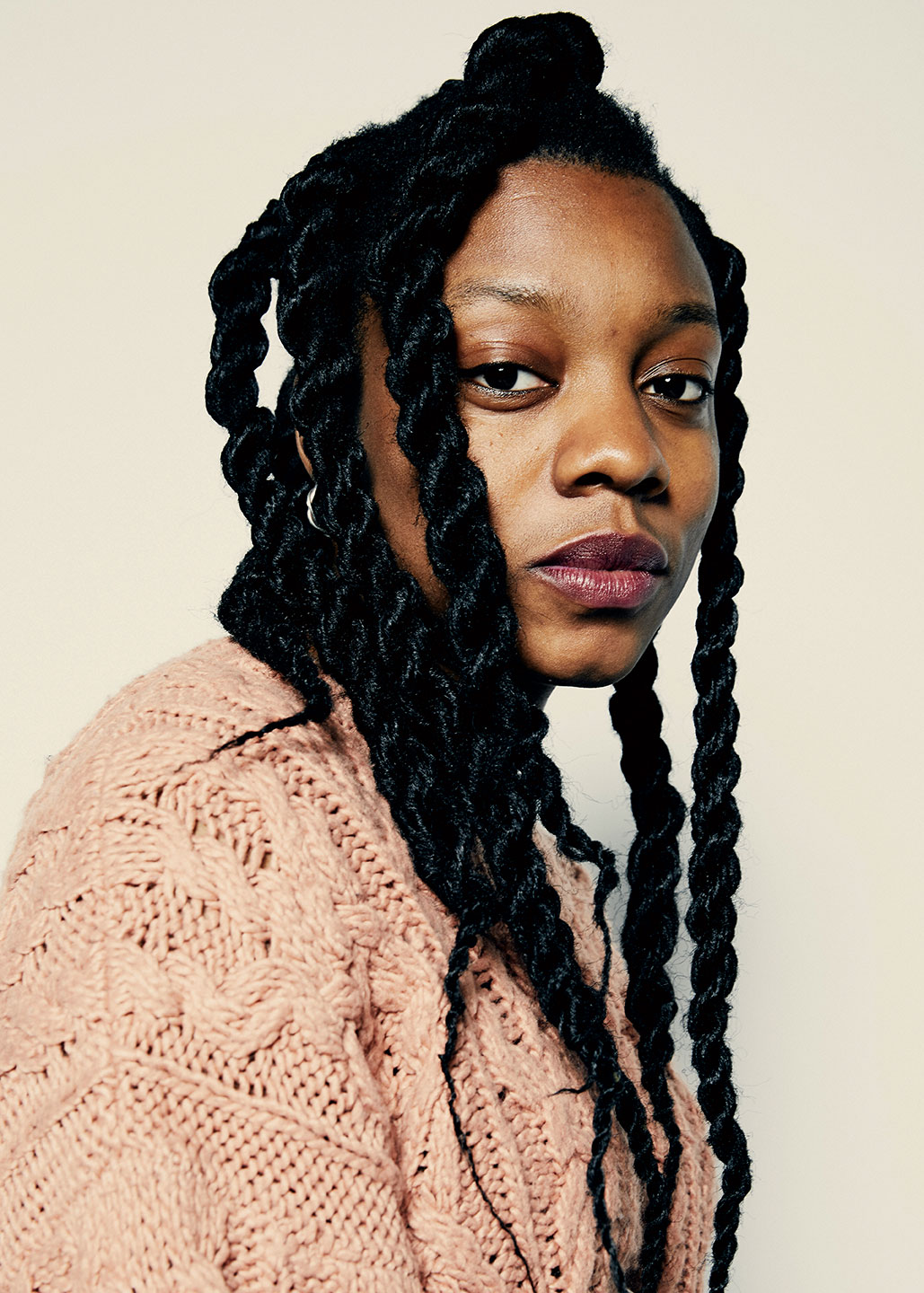Directing a Marvel movie is a challenge under any circumstance, but Nia DaCosta’s debut with the mega-franchise comes with a heftier set of expectations. At 33, she’s the youngest person ever to helm one of the superhero movies as well as the first Black woman, and The Marvels (in theaters now) is only the third MCU feature film led by female characters. It’s also DaCosta’s third feature ever, after directing the crime drama Little Woods and the 2021 reboot of Candyman. No pressure!
DaCosta, however, is unbothered by the weight of all those facts. “It’s so funny, I didn’t really think about it, and it’s not something you can sit with, at least not for me,” she explains. “It’s a great headline…but I don’t wake up in the morning like, ‘Ah, it’s me, the first Black woman.’”
The implications of her hiring hit her during production, though, when colleagues would tell her how rare it still is to see a woman of color behind the camera in a notoriously white, male-centered industry. “Sometimes when I’m on set and I’m working with people, they say, ‘This is my first time having a Black female director,’” DaCosta says. “That’s really special to me. Or when I talk to other female directors or Black directors who want to be doing Marvel films or big films like this—it’s nice to know that because I’m doing this, they feel like there’s a path. That’s really cool. But in terms of the pressure of it, I’m just a person trying to survive their 30s.”
The Marvels is the long-awaited sequel to 2019’s Captain Marvel, which introduced Brie Larson as Carol Danvers, a former Air Force pilot who gains superhuman abilities after an explosion. The new movie unites her with Monica Rambeau (Teyonah Parris), who debuted in WandaVision, and Kamala Khan (Iman Vellani), the teenage Ms. Marvel who headlined her own Disney+ series last year. Plot details are mostly under lock and key when I reach DaCosta via Zoom in London, but the general premise is that the three women end up swapping places whenever they use their powers after an incident with a wormhole.
Even by the byzantine standards of comic book lore, three lead superheroes switching powers sounds complicated, but DaCosta was again unfazed. She grew up reading Spider-Man and X-Men comics, and she’s a big fan of G. Willow Wilson’s Ms. Marvel books and Kelly Sue DeConnick’s Captain Marvel work. “It’s just my nerd heart exploding with joy,” she says of directing The Marvels.
DaCosta was somewhat less familiar with Monica Rambeau, but that wasn’t a problem. “Basically, because it’s Marvel, you have someone who can pull every single thing for you,” she explains. “It’s so crazy.” She read a lot of early Monica appearances from the 1980s in an attempt to “get a handle” on the character’s abilities. “She’s so powerful,” DaCosta says. “She can do basically anything. It was such a great opportunity to bring not just the character of Monica Rambeau, but also this actress—Teyonah Parris—to this huge stage. I wanted this to be not only her origin story, but also her ascension.”
Even with just three movies under her belt, DaCosta is already building a circle of repeat collaborators she trusts and respects. The Marvels marks DaCosta’s second time working with Parris, whom she handpicked for Candyman and describes as “so good, so good.” She’s also excited to reunite with Tessa Thompson, who starred in Little Woods, for her upcoming film adaptation of Henrik Ibsen’s play Hedda Gabler, which was about to start shooting in London when we spoke. (DaCosta is normally based in her native and “forever home” New York City, where she lives with a “silly but lovely” dog named Maude.)
A 19th-century realist drama may seem like an unusual choice after a gritty horror movie and a space-set superhero extravaganza, but DaCosta actually started working on Hedda five years ago. She fell in love with the play while getting her master’s degree in writing at London’s Royal Central School of Speech and Drama. “The theater section was so exciting and it really taught me a lot about how to be a better writer,” she recalls. “One of the plays that we studied was Hedda Gabler, and I absolutely loved it. I thought it was so cool and weird. Hedda is basically like Lady Macbeth or Hamlet. She’s one of the top female characters in the theater canon. I had a vision of it in my head that was less subtextual, much more textual. So, I set about writing it and it became this really fun, intense, sexy, thrilling movie.”
As you may have guessed, there’s really no genre that DaCosta can’t appreciate. Having tried her hand at crime, horror, and superheroes, she already knows what she wants to do next: musicals. “I love them so much,” she says. “I think you can do so much with them. And I really want to do a good, old-fashioned, but very modern Western. You can really tell a story about humanity and about American ideals and values that’s universal, but from a different perspective. Obviously, the lead would be a Black woman, because there are a lot of really cool, fun stories that center Black people and Black women in particular in the West.” Hollywood, you know what to do.
Top Image: NIA DACOSTA: GETTY IMAGES




